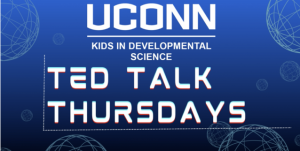
There has been much research that has shown bilingual individuals underperforming in standardized vocabulary assessments, yet do better in executive control tasks/cognitive control, compared to monolingual individuals. Hence, researchers questioned whether bilingual children had such a benefit on working memory. Working memory can be defined as the ability to take in and retain information when distracted, processing other information simultaneously, etc.
They hypothesized that bilingual children would have better working memory compared to monolingual children and how it affects them over a span of three years. However, their results demonstrated that their hypothesis was not supported; bilingualism does not provide an advantage in working memory. The monolingual and bilingual children performed equally well!
To read more, click here!
Ashley Bejar, UConn KIDS Research Assistant









